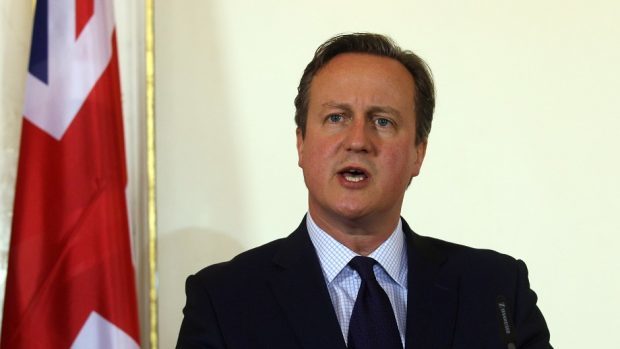David Cameron warned last night that Britain’s operation in Syria would require “patience and persistence” as RAF planes launched their first raids on Islamic State strongholds.
Tornado jets began bombing within an hour of MPs backing the extension of air strikes beyond Iraq.
Four aircraft carrying Paveway IV guided bombs attacked the Omar oil field, used by IS to finance operations.
Another two flew out to Cyprus yesterday, as well as six Typhoons from RAF Lossiemouth in Moray.
The prime minister said MPs had made the “right decision” and Foreign Secretary Philip Hammond insisted Britain was “safer” as a result.
Some 66 Labour MPs voted with the UK Government, with only seven Tories rebelling.
All but two of Scotland’s MPs – Liberal Democrat Alistair Carmichael and Conservative David Mundell – opposed the motion.
This prompted SNP Westminster leader Angus Robertson to declare Scotland had been “dragged into a war with no exit strategy”.
As the military operation got underway, divisions within Labour appeared to be widening amid claims those who voted in favour had faced threats of recrimination.
Ken Livingstone, who is jointly leading a review into Labour’s defence policy, suggested he would support efforts to deselect pro-war MPs.
And the Left Unity party published a list of those who voted for air strikes under the banner “deselect them now”.
There were also calls for a review of politicians’ security after anti-war protesters bombarded MPs with images of dead babies and severed heads.
Eleven members of Jeremy Corbyn’s shadow cabinet decided to support air strikes, including shadow foreign secretary
Hilary Benn who was widely praised for his impassioned speech.
In it he directly challenged his party leader who had been forced into granting Labour MPs a free vote, despite being personally opposed to intervention.
The frontbencher received rapturous applause and cheers from across the House after branding IS “fascists that held the country in contempt”.
He is now tipped to be the next leader of the Labour party, with bookmaker Coral halving its odds of him succeeding Mr Corbyn from 4-1 to 2-1.
But shadow chancellor John McDonnell said the oratory reminded him of Tony Blair’s address taking Britain into the Iraq War.
And former first minister Alex Salmond said Mr Benn’s father Tony would be “birling in his grave” over his son’s support for air strikes.
In response, Tony Benn’s granddaughter Labour councillor Emily Benn – Hilary’s niece – demanded he take back the “deeply offensive and simply untrue” comments.
The Gordon MP later issued a statement insisting he meant no disrespect to Tony Benn.
He added: “‘Birling in your grave’ is a well known Scottish idiom which means a deceased person would be enormously surprised by the current turn of events.”
Defence Secretary Michael Fallon said the initial bombing raids had dealt a “real blow” to IS’s financing.
He added: “The terrorists depend for their revenue on the control of oil. Cutting off their finances is extremely important to degrading the terrorists, to undermining their campaign in Iraq, and to shrink their operations in eastern Syria.”
But critics of action have cast doubt on claims that 70,000 moderate fighters on the ground in Syria would be able to take on IS.
Tory MP Julian Lewis, who chairs the Commons defence committee, warned of “bogus battalions”.
Barack Obama welcomed the vote, which Mr Cameron won with a comfortable majority of 174.
The US president described IS as “a global threat that must be defeated by a global response”.
Alongside the move to escalate UK military involvement, Tory peer Baroness Shields has been appointed minister for internet safety and security.
Her remit includes curbing access to harmful material, including terrorist and extremist content.
